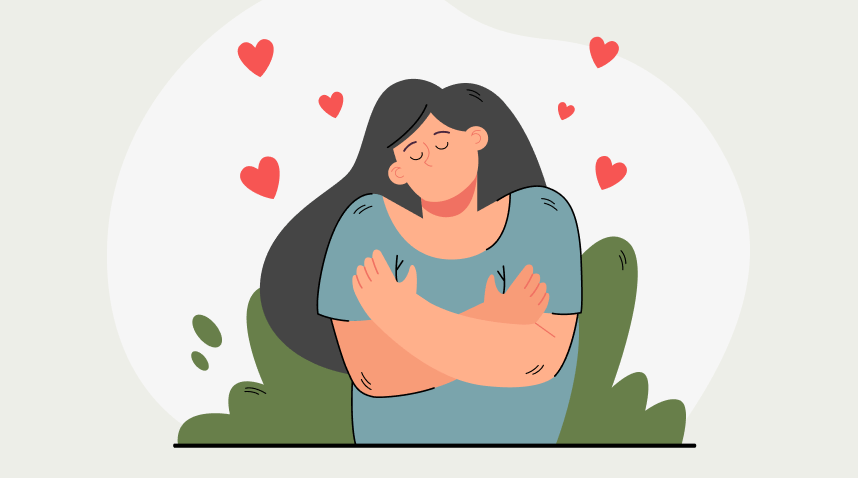TLDR: Lydia shares her cycles of emotions when going through a breakup and how she eventually bounce back with the support of loved ones, healthy distractions, and deep realizations.
I was heartbroken after my first break-up. I would like to share some things that helped me through the process and I hope that it will be useful for you!
Before getting attached I used to have many crushes but they never knew until I finally told them a long time after. I used to feel needy and wondered when I would ever find a boyfriend but I had high expectations and never really settled down.
After I became more passionate about Buddhism when I was in Year 4 of university I felt that I had more emotional stability. I had fewer cravings and felt that there were more meaningful things to life than looking for a partner.
Eventually, I fell in love and found a boyfriend. Impermanence then waged war on my relationship and we broke up.
Here are realisations that helped me through the breakup, I hope that they will be useful for those going through their share of breakups
1. I am still very loved!
Post break up I felt abandoned, rejected and feelings of guilt came up. I asked myself what I should have done better.
I was unable to accept that the person I loved chose to move on. Even knowing the teachings of impermanence, I could not believe and accept that his feelings for me had changed.
I think the most important thing that helped me through was support from family and friends. To remind myself that I am still very loved. To spend time with them and to purposefully distract me till I achieve mental stability to process the difficult perceptions of abandonment and rejection.

2. It’s okay!
It’s okay to be sad or depressed. I used to see crying as a sign of defeat or weakness.
I wanted to set a timeline for myself to heal, recover and move on, but I couldn’t. And it’s okay because creating a timeline for myself to move on added to the suffering.
There is a strong societal stigma pertaining to depression because it seems that the person is depressed out of their own choice.
But how can we forget that no one wants to suffer and we all want to be happy and peaceful?
While some aspects of managing depression are within our control, I think that we can be very helpless when strong emotions arise.
We can try to modify the aspects as much as we can such as avoiding triggers, distracting ourselves and not falling into habitual patterns of unwise decisions. But sometimes, we might still fail and become demoralised as a result.
Through this experience, I really feel much more compassion for people who have gone through depression. It is not just a clinical diagnosis but a difficult life situation, which might persist for a long time.
So, I tell myself it’s okay. It’s okay to still feel sad, it’s okay to feel needy and lonely. It’s okay to have thoughts of wanting to find someone to love you. It’s okay that I still don’t know how to love myself well. It’s really okay.
And this acceptance is loving kindness and compassion to oneself. I always struggle with loving kindness for myself, not knowing how to love myself. But this acceptance is the first step. Ajahn Brahm used to teach us, ‘Be kind, Be gentle and Make peace.’ His teachings have really helped me through this difficult period.
To open the door of your heart to whatever you are experiencing, and to sit tight and remind yourself that the storm will pass. Once you get used to the process, it is about bracing yourself and preparing for the storm too!
Another teaching that was useful is the analogy of the hand. If we put our hand in front of our face, it covers our whole world and our hand is the world.
But if we put our hand back to where it belongs, at the end of our arm, we can now see the whole world.
There was a time when the break up was the world to me. There was nothing I would think of except feelings of sadness and I felt so unmotivated to do anything at all. I could not see the love from my family and friends and I was so fixated on a love that I could not get.
I believe it was a lot of romanticising the good times and forgetting the difficult times. But if you deliberately remind yourself of the other things in your life, it reminds you of the blessings that you already have. And these blessings too, are impermanent.
Ajahn Brahm also taught that a relationship that ended is like a concert that ended. All concerts come to an end no matter how good it is, such is the nature of life.

3. Awareness of what you need
Post break up I was trying to act as if nothing happened. I was trying to continue my work and Dhamma commitments as much as possible, but it was a huge mistake.
What I needed was probably just to rest and to spend time with people I love.
There was a strong desire to reconnect with my previous boyfriend but every contact brought back difficult emotions. Yet I was still unable to let go.
Sometimes, our thoughts can feel very real and justified, although it might not be the best decision for us. This was probably my first experience with how we cannot fully trust our thoughts.
What helped me was that when the strong desire arose, I decided not to react or take action but I went for a jog instead.
After the jog, the compulsion to act was weaker, and I made a different decision. Even if you still decide to act in the same way after coming back to it, then so be it.
I can almost understand how obsessive people can be post-breakup. Although I was not obsessed to the extent of being a stalker, I could see many obsessive thoughts in me at one point in time.
Acknowledging that I needed rest and help is also important. To know that I am not in a good place now and hence to take a break from the commitments at hand.
I also realised that I needed to care for myself and to do things that made me happy.
Things that did help me were going to nature, especially going to the beach and listening to the waves was very therapeutic. Talking to family and friends or crying when you need to, listening to Dhamma talks, chanting and meditation and having adequate rest help.

In Summary
All in all, breakups suck! But Ajahn Brahm also teaches us that our life experiences are our kammic ingredients, whether good or bad. It is up to us what kind of kamma we make out of it.
Even with poor ingredients, we can still make a delicious meal. With our dog poo experiences, we can fertilise our mango tree, and it can be transformed into delicious mangoes!
And when we taste yummy mangoes, we are reminded of the dog poo in it. So when you see happy relationships, we must also remember to go – Sadhu Sadhu Sadhu, because who knows what kind of dog poo others have experienced?
Lastly, it will all pass, good or bad. And good, bad, who knows. Taking refuge in the triple gems and guarding my kamma and keeping myself close to the practice is probably what is most meaningful for me in this lifetime. That being said, a broken heart still takes time to heal. So be kind and patient with yourself and give yourself as much time as you need. Buddha bless!
Wise Steps:
- Breakups suck, and acknowledging that sucky-ness is the first step to being in tune with your emotions.
- Don’t believe all your thoughts! Such events can trigger different thoughts that might seem very real but actually aren’t real.
- To know what you need and take part in activities that might help such as jogging, exercise, nature walks


